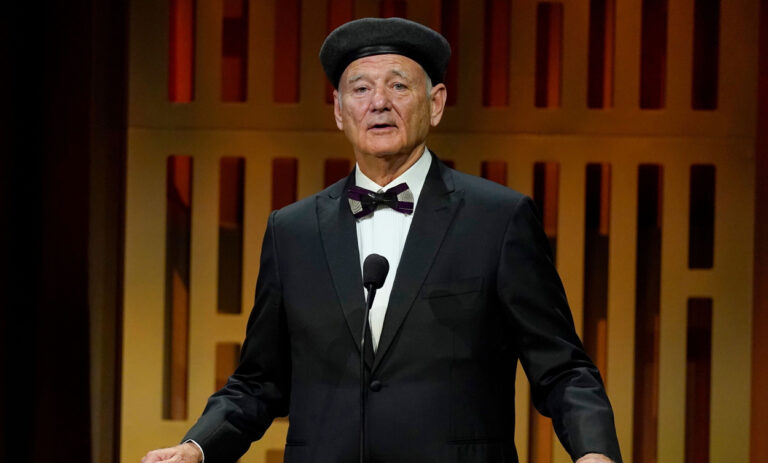Bill Murray pays $100,000 to silence latest victim who was attacked on set of Aziz Ansari’s movie
You would think that when American actor Bill Murray—who’s previously faced a string of workplace misconduct claims including Geena Davis’ accusation that Murray sexually harassed and verbally abused her during the filming of the 1990 movie Quick Change—was approached by fellow actor and comedian Aziz Ansari (who’s also been accused of sexual misconduct and although he addressed the matter in his Netflix special Right Now, he never bothered to publicly apologise for it) to star into his 2023 film Being Mortal, someone in his PR team would have spoken up about just how bad of an idea this is.
Well, for whatever reason, no one did, and so Murray took on the project—which, it should be noted, is written, produced, directed and starring Ansari. And guess what happened on set? The 72-year-old allegedly behaved inappropriately with a “much younger” female production assistant, resulting in Murray paying the unnamed victim $100,000 in exchange for confidentiality and no further legal action. Nice one, Bill…
Back in April 2022, Variety reported that a letter was sent to Being Mortal’s production team stating that “production cannot continue at this time,” due to an investigation into the allegation made against Murray.
Said allegation claimed that the actor grabbed the female production assistant near a bed from the set, kissed her on the mouth through his face mask, and also on her body while “straddling her.” As the woman understandably interpreted these problematic actions as “entirely sexual” and was “horrified,” Murray himself told CNBC that he was only trying to joke with her and it “wasn’t taken that way.”
“I did something I thought was funny… The world’s different than it was when I was a little kid,” Murray went on to state. That’s strong, coming from someone who was also accused of “inexcusable and unacceptable” behaviour on the set of 2000’s Charlie’s Angels by cast member Lucy Liu. What’s Murray’s poor excuse for his despicable comments made towards the American woman?
Furthermore, in her recently published memoir Dying of Politeness, Davis shared details about her complicated relationship with the previously beloved actor. In her book, she alleged that prior to filming, Murray tested if she would be “compliant” by requesting that she lie on a bed and try a massage device called “the Thumper.”
“I said no multiple times, but he wouldn’t relent,” Davis wrote. During shooting, Murray also allegedly screamed at her and others on set. Speaking to Vanity Fair, she shared, “Once I had that experience, on day one of the movie, then everything about him after that was completely coloured by knowing what lurks within. I saw it very, very often when he would deal with other people that way.”
Production has not yet resumed on Being Mortal, though it seems that everyone saw it coming except the two alleged sexual predators leading the disaster movie…






